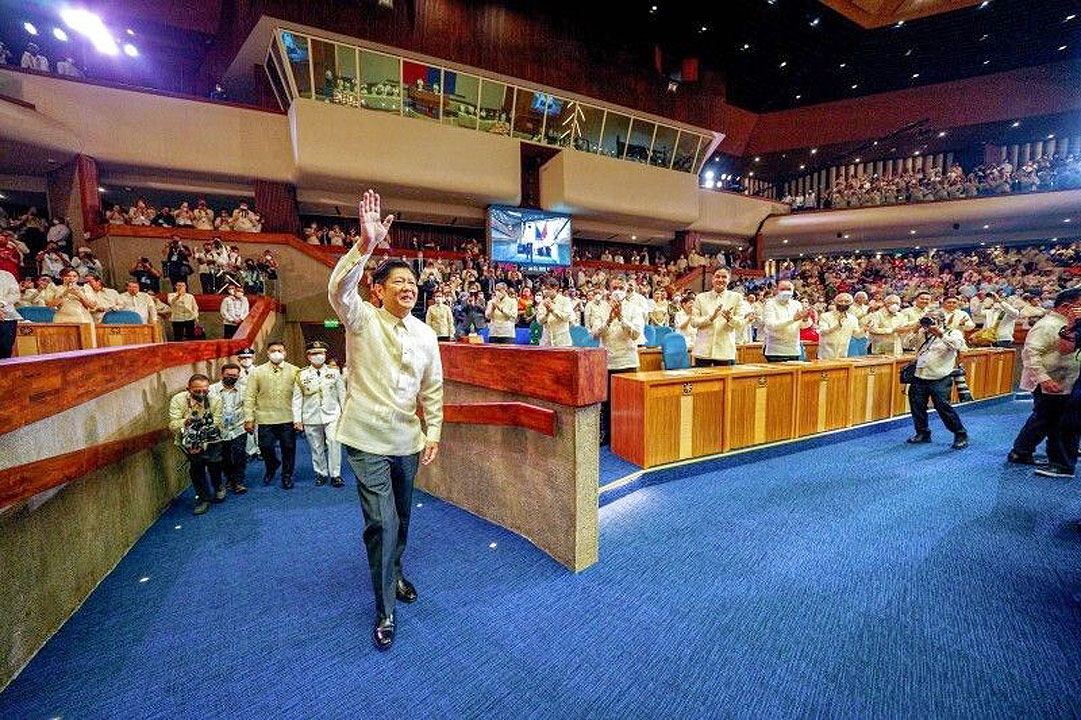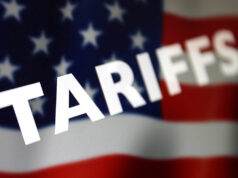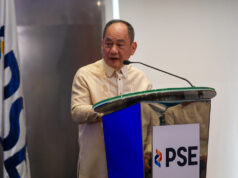Farmers looking forward to gov’t support, value-chain streamlining after first SONA

THE government’s focus on agriculture to address rising food costs heralds the distribution of financial assistance and subsidies, as signaled during President Ferdinand R. Marcos, Jr.’s first State of the Nation Address (SONA), farmers said.
“The President’s SONA underscored the problem of high food prices because the cost of producing them is increasing, compounded by the unnecessary layers in the value chain,” Samahang Industriya ng Agrikultura Executive Director Jayson H. Cainglet said in a Viber message.
“The challenge of our times is to locally produce more, and the SONA emphasized the government’s commitment to subsidize essential farm inputs — fertilizer, pesticide, feed and fuel. We also commend the marching orders to (expand) aquafarms, hog and poultry farms as the basis for increasing local production. It is by and large, a welcome start,” he added.
Federation of Free Farmers President Leonardo Q. Montemayor said that the immediate concern is to minimize supply disruptions.
“In the case of rice, our estimate is that we’re looking at a 10-15% drop in palay (unmilled rice),” he said in a phone interview.
Mr. Montemayor said that the President’s value-chain approach is useful in determining what interventions are needed, especially in terms of budgetary support.
“I hope he can scourge around for additional funds. Time is of the essence. What is critical is looking at agriculture as a whole system. It starts from pre-production, research and development, irrigation, production, mechanization, credit availability, all the way to harvesting, post-harvesting, milling, storage, even Kadiwa centers,” he added, referring to government-organized outlets where produce is sold at concessional prices.
He said there is a need to harmonize water policy to ensure agriculture’s water requirements are met.
“There are so many water agencies. Potable water in Metro Manila is always prioritized so irrigation becomes secondary. It’s important to synchronize these activities to come up with good water sources,” he added.
Mr. Montemayor also said there has to be a serious review of the Rice Tariffication Law, which was not mentioned during the SONA.
“Our first priority is productive capacity locally to provide our own food needs. Imports (should be) the last resort. Why is the first line of thinking lessening tariffs on imported food? It’s discouraging to farmers. Even if they apply these modern technologies, they are under the threat of lower palay (unmilled rice) prices,” he added.
Food advocacy group Tugon Kabuhayan said it supports the President’s proposals for financial and technical support for farmers and fisherfolk.
“We welcome the President’s initiative and clear vision to increase and support local production. We view the programs he mentioned as doable and timely especially the need to increase production of livestock, poultry and fish,” Tugon Kabuhayan co-convenor Asis G. Perez said in a statement.
“A more pro-local producer policy would greatly help our goal of making fish cheaper and more accessible for everyone,” he added.
The Kilusang Magbubukid ng Pilipinas said that Mr. Marcos will likely continue the “pro-market policies and programs of former Secretary William D. Dar,” the President’s predecessor as Agriculture Secretary.
“Mr. Marcos did not mention the structural development of domestic agriculture that will foster job generation and overall industrialization… his plans on how to lower the cost of farm inputs are also lacking and only seem aspirational,” the group said in a statement.
Department of Agriculture (DA) Regional Executive Director Arnel V. de Mesa said during the post-SONA economic briefing on Tuesday that the government will be focusing on boosting production of key agri-commodities to help bring down food prices.
“These will be supported by the provision of credit and financial assistance,” he added.
By October, the DA will be launching the Masagana 150 and 200 programs, which aim to increase yields of inbred and hybrid rice, respectively.
“We are also focused on giving targeted interventions to farmers and fisherfolk. We will continue to digitize the sector starting with the registry system. We have more than 12 million farmers and fisherfolk. By digitalizing, we will be avoiding duplication in the interventions,” he said.
The DA will also be building border inspection facilities to prevent any further entry of animal transboundary diseases. These are due to be built in Subic, Batangas, Cebu, Davao and Manila.
Mr. De Mesa said the DA is also looking into strengthening distribution systems, establishing regional food hubs, and tapping renewable energy for irrigation. — Luisa Maria Jacinta C. Jocson



